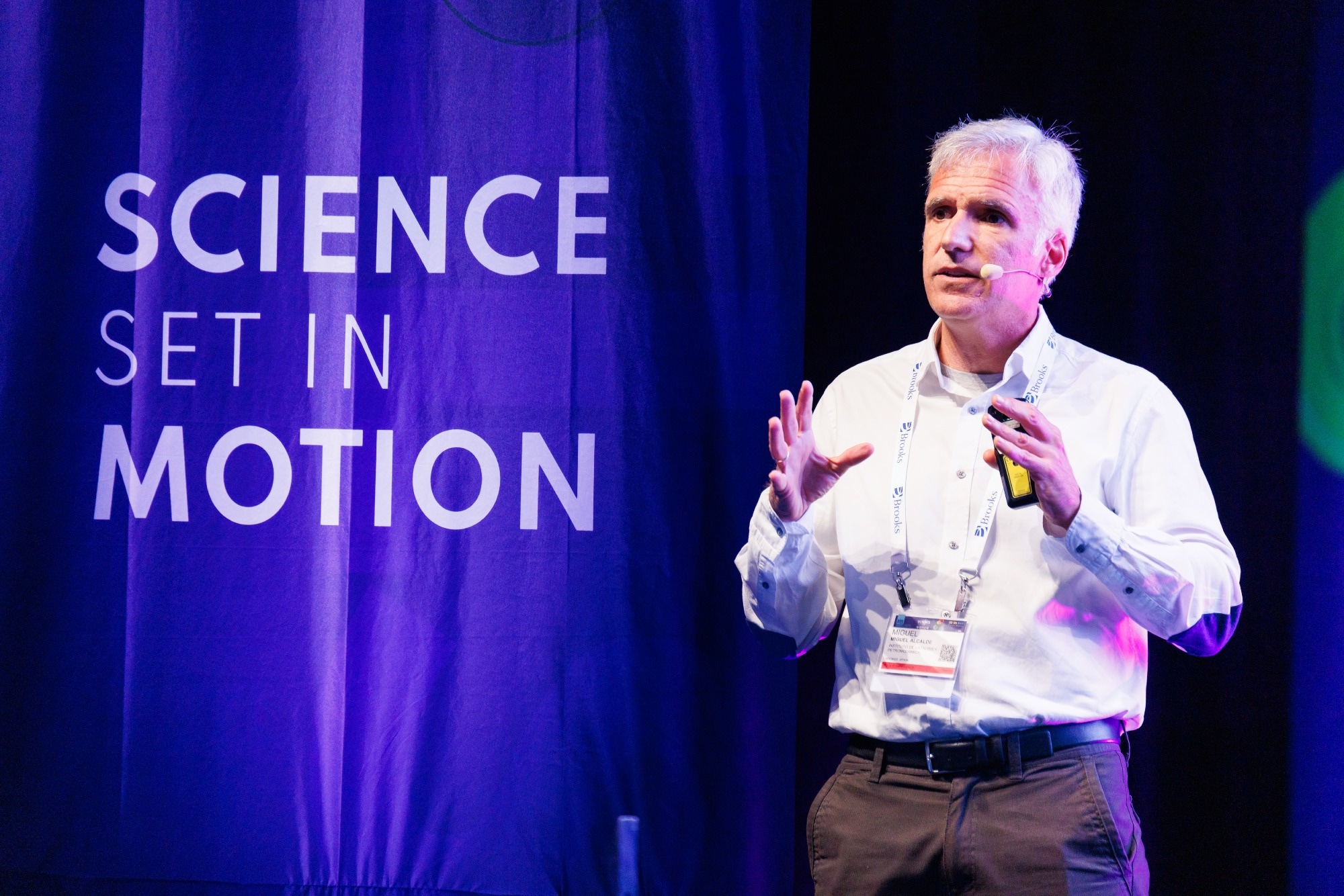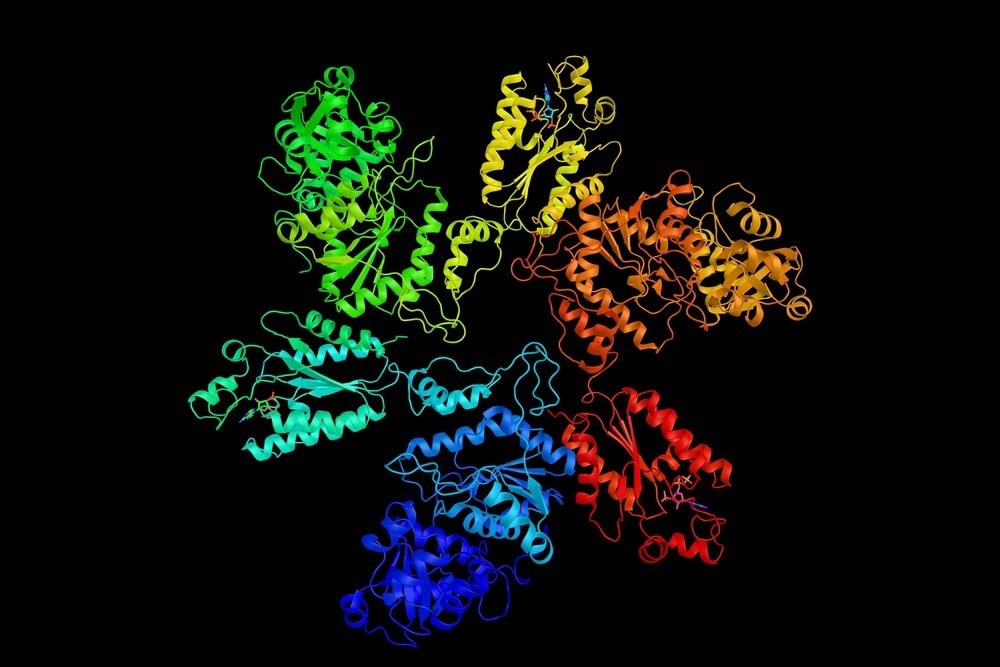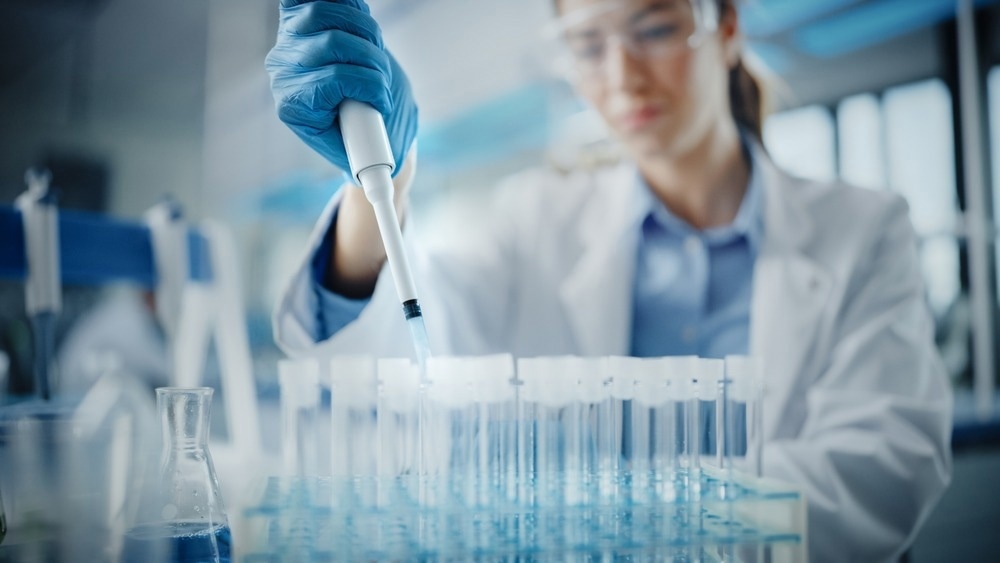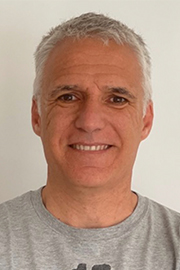In this interview conducted at SLAS EU 2023 in Brussels, Belgium, we spoke to Miguel Alcalde, a Research Professor at the CSIC, about directed evolution in enzymology and the wider biotechnology sector.
Please could you introduce yourself and tell us what inspired your career in enzymology?
I am Miguel Alcalde, a Research Professor at the CSIC, the National Research Council of Spain. I am also the founder of EvoEnzyme, a spinoff company that has stemmed from my lab. I consider myself a biologist by training but a protein engineer by devotion.
During my Ph.D., I was in a European project dealing with the engineering of enzymes. The process was somewhat frustrating because we were using rudimentary techniques, but things started to change when I had the opportunity to continue my postdoctoral studies with Frances Arnold at Caltech.
Frances is the inventor of directed evolution, and she was awarded the Nobel Prize in Chemistry for this invention and the development she achieved.
During those years at Caltech, her lab was at the boiling point, with countless ideas and innovations. My experience in her lab changed my life and gave me a focus, which is why I am in protein engineering now.
Your research predominantly focuses on the engineering of enzymes for biotechnological purposes. Alongside this application area, what other applications does your research provide benefits for?
Biotechnology is abundant in every single aspect of our lives. I am extremely lucky to have been involved in many biotech projects, including designing enzymes for applications, ranging from bioremediation, pulp biobleaching, organic synthesis, to working with biomedical devices. Currently, we are involved in engineering enzymes for the pharma-chemical sectors.

Image Credit: SLAS
As the opening keynote speaker at SLAS EU 2023, you gave a talk titled “The golden age of directed evolution of enzymes.” What is directed evolution, and since its discovery, how has it influenced the field of protein engineering?
Directed evolution is a revolutionary strategy to tailor enzymes, metabolic pathways or even whole microorganisms with improved traits. It essentially mimics the Darwinian natural selection algorithm but in the test tube.
It involves the introduction of random mutations and recombination events, coupled with screening or selection methods, in such a manner that you design customized biocatalysts.
Directed evolution has influenced protein engineering in general terms. Currently, most of the experiments involving enzyme engineering use directed evolution.
Please can you give an overview of what you discussed in this talk?
As the audience may not have been entirely familiar with the topic, I started by giving a brief overview of what directed evolution is, as well as some of the current hot topics in the field of directed evolution. This was followed by some examples of case studies taken from my laboratory.
I discussed enzymes for biomedical devices and the novel concept of ancestral resurrection and evolution of enzymes. This involves putting ancestral sequences in modern microbes. Afterward, these enzymes are evolved so that we can play with the timeline of evolution, traveling back and forth to access novel properties.

Image Credit: ibreakstock/Shutterstock.com
My talk closed with peroxygenases, a wonderful class of enzymes we have recently been involved in.
SLAS is where science and technology unite. What advancements in technology, instrumentation, etc., have allowed for “the golden age of directed evolution of enzymes”?
I believe automation and instrumentation are vital for directed evolution experiments as a vast library of mutants needs to be screened. All these advances are helping to advance the field of directed evolution further; most significantly, AI is helping to reduce the manual effort associated with screening.
The biotechnology sector is steadily increasing, with more investments in research and development predicted worldwide. How have you seen the sector change throughout your career, and how do you foresee it changing over the next decade?
If we consider 20 years ago and how biotechnology has developed since then, it is fascinating. However, as we advance, we must consider the problems that we are facing concerning sustainability, the circular economy, and reducing our carbon footprint.
Miguel Alcalde - SLAS Europe 2023
In Europe, for example, we have the 2050 Green Deal, which states that we must be climate neutral by this proposed date, and to achieve this, we need to change how we work. Biotechnology has a major role to play in this regard. We need to change how we produce chemicals and energy and manage waste.
How can the mimicking of natural phenomena, such as direct evolution and Darwinian evolution, help accelerate discoveries within the field of biotechnology? What implications would this have for future research?
Directed evolution influences protein engineering and broader disciplines like synthetic biology, metabolic engineering, and systems biology. Through directed evolution, we can harness the power of natural evolution, but at the test tube scale, to create different products covering areas like blue, green, white, and red biotechnologies.
I believe the discoveries and findings in artificial intelligence will dominate the future of directed evolution. I hope that soon, perhaps in 10 years, computers will be able to assist directed evolution, meaning we only need to screen a few tens of variants at the end of the process. This would make everything so much faster.

Image Credit: Gorodenkoff/Shutterstock.com
As a European researcher, how important is it to showcase the rapidly evolving life sciences landscape in Europe at events such as SLAS EU?
The COVID-19 pandemic was a hard time, and attending these conferences in person is great. However, many people are now working in a hybrid model, attending conferences both online and in person.
Throughout your career, you have had many incredible achievements, including co-authoring over 100 articles on enzyme engineering, supervising 35 research projects, and working previously as the manager of the National Research Agency of Spain for biotechnology. What has been your proudest achievement?
Aside from my work with enzymes, my proudest achievement is seeing my students grow up and get positions in both academia and industry. The founding of our spinoff company, EvoEnzyme, was also a proud moment for me.
What is next for you in your work? Are you involved in any exciting projects?
Currently, we are working hard with peroxygenases. We are trying to achieve chemical reactions that textbooks have not described. We are also involved in plastic degradation and upcycling, designing enzymes to help tackle this issue in Europe and worldwide.
Other projects include the design of a smart wound dressing for real-time monitoring of infections with enzymes.
About Miguel Alcalde
The central research of Dr. Miguel Alcalde primarily focuses on the engineering of enzymes by directed evolution for a wide range of biotechnological purposes as well as synthetic biology studies for environmental, energy, and industrial applications.
Miguel Alcalde is CSIC Research Professor and founder of EvoEnzyme, a spin-off stemming from his research group. Dr. Alcalde is a biologist by training, with a postdoctoral stay at CALTECH in the group of Frances Arnold (Nobel laureate in Chemistry 2018). Coauthor of over 100 articles on enzyme engineering and applied biocatalysis and 14 filled patents, Prof. Alcalde has supervised 35 research projects and 12 Ph.D. Thesis. He was working as a manager of the National Research Agency of Spain in the area of biotechnology (2019-2021) and was in charge of coordinating the section of molecular biotechnology and synthetic biology of SEBBM (Spanish Society of Biochemistry and Molecular Biology, 2017-2020).